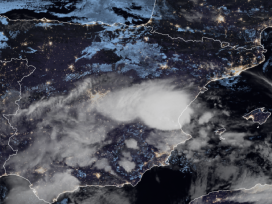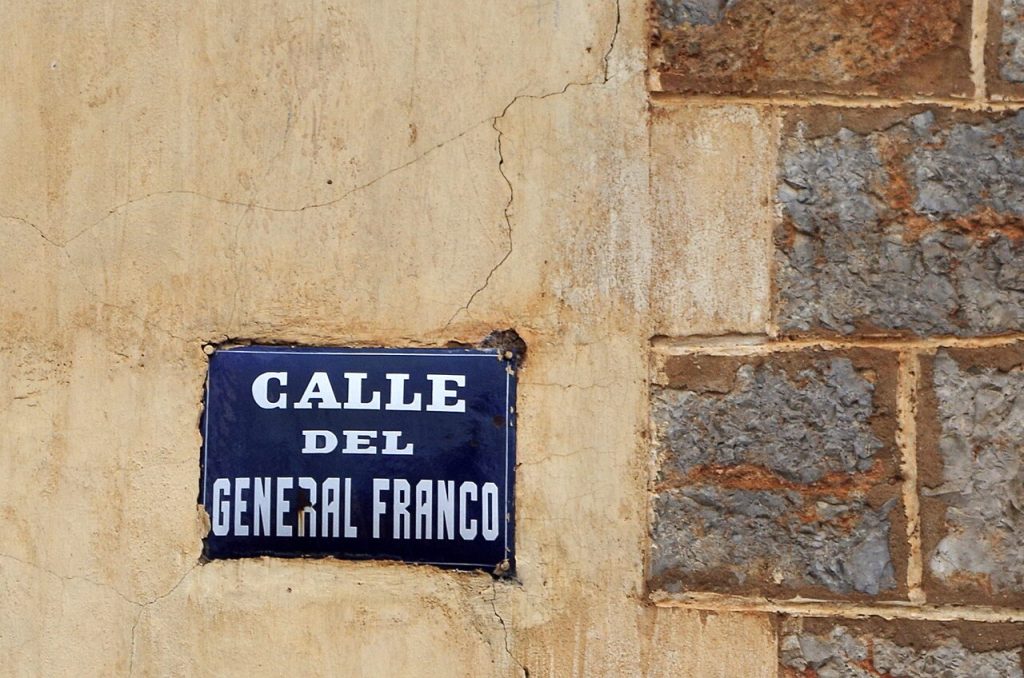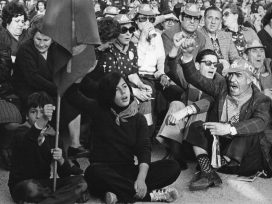At the end of 2024, the Spanish government announced its intention to commemorate the fiftieth anniversary of the death of Francisco Franco. This was not to be a low-key occasion: Pedro Sánchez, the Socialist prime minister, announced more than a hundred events throughout 2025 under the slogan ‘Spain in freedom’. For the initiative’s supporters, the scale of the anniversary was justified by the necessity of explaining to younger generations what Francoism had been, and thus to dissuade them from supporting Spain’s ascendent far right.
But others criticized the initiative. It was pointed out that the ‘freedom’ being commemorated had begun not with the death of Franco in 1975, but with the ratification of the 1978 constitution. This had in turn been enabled by the elections to the constituent Cortes in 1977 and the referendum on the Political Reform Law in 1976, which had made the transitional process irreversible. In fact, the only immediate consequence of Franco’s death had been his replacement as head of state by King Juan Carlos I.
The improvised and top-down nature of the commemoration revealed its political intention: to detract attention from the weakness of the government – an unstable leftwing coalition supported by sub-state nationalists – and the accusations of corruption in which it was embroiled. For the government’s defenders, these criticisms merely proved how far the Spanish Right remained incapable of distancing itself from the dictatorship.
The fiftieth anniversary of Franco’s death has thus shown how the past continues to be a source of tension in Spain, more than twenty years after the eruption of the controversies over ‘historical memory’. To recall: at the end of 2004, the Socialist government of José Luis Rodríguez Zapatero created a commission on the victims of the Civil War, initiating a process that culminated with the approval of the Law on Historical Memory in 2007. Since then, debates on the legacy of the Second Republic, the Civil War, the Franco dictatorship and the Transition have come to dominate Spanish public debate.
In the 2000s, it was thought that these controversies would lead to a new consensus; but the last two decades have shown how wrong that assumption was. This does not mean that the debate has remained on the same terms: the emergence of Podemos and then Vox as major players in Spanish politics, for example, has affected aspects of it. But there have been recurring arguments and issues – such as the possibility of establishing a single official account of the past, or the explanation of the causes of the Civil War – over which serious disagreements persist.
The longevity of the controversy is even more striking given how much Spain has changed in the last two decades. The economic and political crisis that began in 2008 or the Catalan separatist process that culminated in 2017 have had major impacts on society. The country is changing, but the disputes over historical memory remain. It seems that there is something to them that makes them never-ending.
Perhaps this is not surprising. After all, we are dealing with the most traumatic episode in Spain’s recent history, the Civil War of 1936–1939, and the dictatorship that ruled Spain for the next forty years. These historical episodes are still vivid in the personal and family memories of millions of Spaniards.
But this is not all. The controversies over ‘historical memory’ also affect the founding moment of Spanish democracy: the Transition. In the second half of the 1970s, this dismantled the dictatorship and gave birth to a democratic system. For decades, the process of transition was presented as exemplary – and with good reason.
The ‘historical memory’ movement, however, questions this by arguing that the new democracy was built on insufficient policies of remembrance. Some go further, arguing that democracy was based on the impunity of the Francoist elites and a ‘pact of forgetting’ that blocked knowledge about the past. Demands that sentences handed down by the Francoist legal order be declared null and void also clash with the fact that the Transition was made ‘from the law to the law’. In favourable accounts of the Transition, this is seen as positive; but it takes on different connotations if that original ‘law’ is declared illegitimate.
It is interesting to ask whether things could have been otherwise. In other words, whether memory policies could have been revised without refuting – or appearing to refute – some of the basic premises of the Transition. After all, in the 1980s, several reparation measures were approved without much controversy, such as pensions for the disabled and for those who fought on the Republican side. Another example would be the compensation for political prisoners and amnesty for perpetrators on both sides following the 1977 Amnesty Law.
Could, for example, the demand for the opening of the mass graves – a very important aspect of the debates of the mid-2000s – have been developed within the same framework? Who knows? The fact is that something changed in the approach to the politics of memory, and that later debates have not managed to separate the evaluation of the war and the dictatorship from the evaluation of the transition process. And, therefore, from the legitimacy of the democracy to which it gave way.
Memory of memory disputes
The controversies have provoked enormous interest in the Spanish twentieth century. The volume of research, articles, essays, novels, films and plays on different aspects of the Second Republic, the Civil War and the Franco dictatorship produced in the last two decades is truly overwhelming. This could be seen as positive, at least in terms of Spanish society’s knowledge of its past. But the problem – or one of them – is that the debate has all too often been accompanied by accusations of bad faith. It is claimed that the arguments made and the research conducted are not the result of a sincere attempt to understand the past, but mere subterfuges hiding a political agenda. The volume of words produced does not indicate a constructive dialogue, but rather fits into the pattern of polarization so present in today’s societies.
It is also striking how the disputes over memory have generated a memory of themselves. At this point, debates about the recent past refer not only to what happened in the 1930s or 1940s, but also to how those same debates played out in the 1990s, 2000s and 2010s. Those most critical of historical memory initiatives believe they were put forward by the Left when it was about to lose power, if not after; all as a way of delegitimizing a Right that, through the Popular Party, had come to power in 1996 and obtained an absolute majority in 2000.
This interpretation is then projected onto the successive episodes of that dispute. It is all allegedly part of the same process, one that began not in the 1930s but in the 1990s: the use of the past by the Left in its electoral struggle against the Right. These left parties, so the argument goes, have developed a memory of a Right that refuses to break with Francoism. The polemics of historical memory thus become self-referential: the development of the debate is affected by the memory of previous stages in it.
National past, regional memory?
The progressive regionalization of memory policies should also be highlighted, since legislative initiatives have not only corresponded to the Congress of Deputies or to national governments. By 2023, 13 of Spain’s 17 autonomous communities had their own memory laws – a surprising proliferation, given that the Second Republic, the Civil War and the dictatorship were national in scale, even if they took specific manifestations in different territories, as is the case with any historical event or process.
The main problem with this regionalization of memory laws is that it has reproduced and multiplied the controversies. Thus, the rightwing regional governments that came to power after the 2023 regional elections set out to repeal and replace the memory regulations passed by their leftwing predecessors. The new regulations will certainly be repealed as soon as there is another change of government in each region, to be replaced by laws that are in turn challenged by the new opposition – all accompanied by the usual declarations, articles, demonstrations, debates, etc.
After twenty years, it cannot be said that a new consensus is on the horizon. Rather, one senses a seemingly inexhaustible spiral of political squabbles in which, as soon as one front seems to calm down, another intensifies. This is not so much due to the debates on historical memory as to the development – positive in some cases, dysfunctional in others – of the Spanish state. But whichever way you look at it, it is difficult to argue that this is a model for the development of memory policies. Spanish society has had a long time to work on its relationship with the most traumatic episodes of its past. But that relationship only seems to be getting worse.
This article is part of Global Conversations – a project supported by Open Society Foundations. The original Spanish version is published online in Letras Libres.







